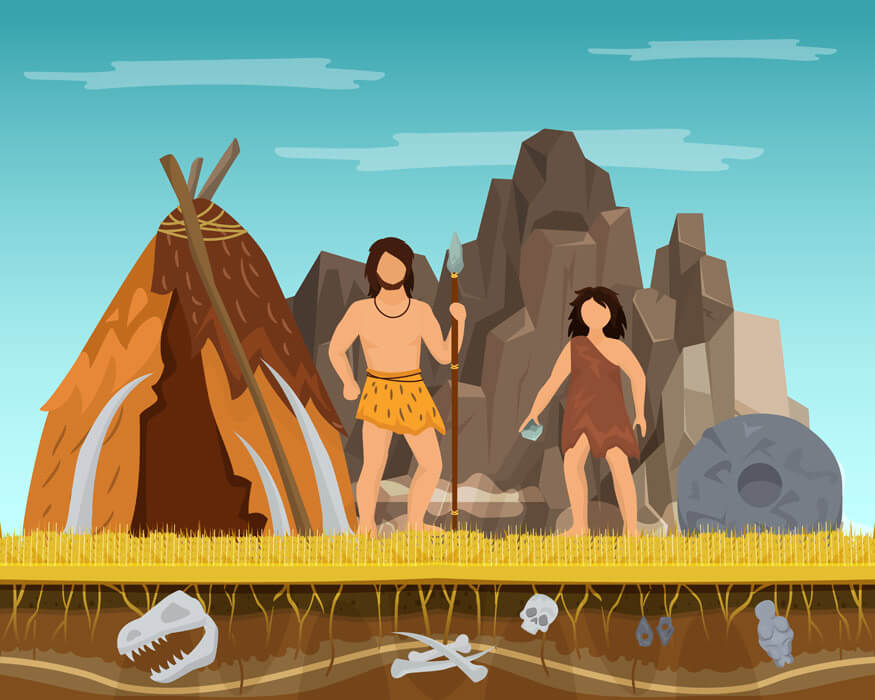A pivotal time in history, the Bronze Age is a prime illustration of human inventiveness and advancement. This amazing historical period, which roughly corresponds to 3300 BCE to 1200 BCE, witnessed the emergence of strong empires and advanced civilisations that flourished as a result of their mastery of bronze technology. The victories and long-lasting effects of the most important empires from the Bronze Age civilisation, whose contributions continue to have an impact on society today, are revealed in this article.
Also Read: What is a pyramid: History of egyptian pyramid and construction
- The Advent of the Bronze Age
- The birthplace of early civilisation was Mesopotamia.
- The Egyptian Empire: Land of Pharaohs and Pyramids
- The Mighty Hittites: Masters of Warfare and Diplomacy
- The Indus Valley civilisation: An Enigmatic Urban Society
- The Shang Dynasty: China’s Bronze Age Powerhouse
- The Collapse of the Bronze Age Empires
The Bronze Age civilisation Era commenced as a revolutionary shift from the preceding Stone Age. It was distinguished for its mastery of metallurgy, particularly the alloy of copper and tin that gave rise to bronze. For ancient cultures, the discovery of this metal changed everything since it made it possible to create sophisticated tools, weapons, and decorations. With bronze at their disposal, civilisations could now create more durable and effective tools, driving progress in agriculture, trade, and warfare. The discovery of bronze was a turning point in human technological progress, and the Bronze Age tools that followed its widespread usage were an era of innovation and prosperity.
With legendary city-states like Summer, Akkad, and Babylon developing as significant centres of authority during antiquity, Mesopotamia had a significant influence on the early Bronze Age civilisation. These city-states represented the peak of cultural development, flourishing in the rich region between the Tigris and Euphrates rivers. An outstanding accomplishment that made cuneiform one of the first writing systems ever created by humans was made by the Sumerians. A striking example of their civilisation’s unmatched brilliance is the invention of cuneiform. This innovative script revolutionised record-keeping and communication among people, leaving an indelible mark on the progression of ancient societies. A complex tapestry of administrative and cultural innovations that affected future generations was made possible by their sophisticated system of government, religious beliefs, and creative accomplishments. The wisdom and knowledge of the Mesopotamian empires served as a beacon of progress and governance, shaping the principles of statecraft and societal organisation.
In the northeastern corner of Africa, the Egyptian Empire flourished, building an impressive legacy that continues to awe the world today. The pharaohs reigned as divine rulers, believed to be the intermediaries between gods and mortals. They constructed iconic pyramids and tombs that stood as eternal monuments to their power and beliefs in the afterlife. Moreover, the Egyptians were pioneers in medicine, architecture, and astronomy. Their knowledge of anatomy, architectural prowess in building temples and structures, and celestial observations contributed significantly to the development of human civilisation, shaping diverse disciplines that continue to be relevant in modern times. The timeless wonders of Egypt’s architecture and their advancements in medicine and astronomy stand as testaments to their enduring legacy.
The Hittite Empire emerged in Anatolia (modern-day Turkey), becoming a formidable force in the Bronze Age tools world. Known for their advanced bronze weaponry and military tactics, the Hittites engaged in diplomatic relations and signed some of the world’s earliest known treaties. By skillfully balancing military might and diplomatic finesse, the Hittites expanded their influence throughout the region, securing their position as a dominant power and leaving a lasting impact on the art of statecraft and strategic diplomacy. The Hittite’s prowess in warfare and their diplomatic acumen set a precedent for future empires, shaping the way diplomacy and power projection were conducted in the ancient world.
Also Read: Why Is History Important and How Can It Benefit Your Future?
The Indus Valley civilisation, also known as the Harappan civilisation, thrived in the Indian subcontinent during the Bronze Age. This sophisticated urban society boasted well-planned cities with advanced sewage systems, reflecting their remarkable urban planning. The Indus Valley people left behind an undeciphered script with unique symbols, challenging modern scholars to unlock the secrets of their communication and literature. Pottery, jewellery, and figurines are only a few examples of the artefacts that demonstrate the creative prowess and cultural complexity of this ancient society, offering fascinating hints about its practices and beliefs. The mysterious character of the Indus Valley civilisation piques people’s interest and excitement, making it one of history’s greatest mysteries and capturing the attention of both historians and archaeologists.
In the Yellow River Valley of China, the Shang Dynasty reigned as a dominant power during the latter part of the Bronze Age civilisation. Known for their highly skilled bronze casting, the Shang people crafted exquisite ritual vessels and weapons, revealing their advanced metallurgical knowledge. These vessels served religious purposes and were central to their ceremonies and offerings. Additionally, oracle bones, inscribed with divinatory questions and predictions, provide valuable insights into the religious and political aspects of their society. The Shang Dynasty’s achievements demonstrate the profound influence of bronze technology on the development of ancient Chinese culture and governance, leaving a profound imprint on the fabric of Chinese history and tradition. The Shang Dynasty’s reverence for ritual and their early form of writing laid the groundwork for China’s rich cultural heritage.
As with all empires, the Bronze Age powers eventually faced their own downfalls. Numerous environmental issues, such as a lack of resources, nomadic tribal invasions, droughts, and natural disasters are suggested to have contributed to the Late Bronze Age Collapse, which is estimated to have taken place about 1200 BCE. A new era and chapters in human history were inaugurated by the fall of once-powerful civilisations at this time. The fragile character of human communities is poignantly brought home by this collapse, emphasizing the need for ongoing adaptation and fortitude in the face of difficulty. The lessons gleaned from these empires’ downfall remain pertinent today, serving as a cautionary tale advocating sustainable development and the preservation of diplomatic relations to foster global stability.
Also Read: 10 interesting ways to learn history
Conclusion
The Bronze Age civilisation Era was a time of remarkable human achievements and profound cultural progress. The journey from the inception of bronze metallurgy to the rise of influential empires laid the very bedrock for modern civilisation. The accomplishments and failures of the Bronze Age civilisations may teach us important lessons that are relevant to the present and have an impact on our long-term objectives. We embrace the legacy of the Bronze Age and go on an unending journey for knowledge and understanding because of our curiosity, tenacity, and great appreciation for our common human past.
At Euroschool, we take our students on an enlightening journey through history, exploring the wonders of the Bronze Age Era and its Empires. As we seek to unravel the mysteries of the past, the Bronze Age tools offer a timeless illustration of humanity’s resilient spirit. Our interactive teaching strategies and immersive learning opportunities are intended to inculcate in our pupils a profound respect for the priceless contributions and outstanding accomplishments of these Bronze Age civilisations. By delving into their legacies, our students gain a comprehensive understanding of the fundamental principles that underpin modern society, nurturing their holistic development and fostering a sense of connection to our shared human heritage.









